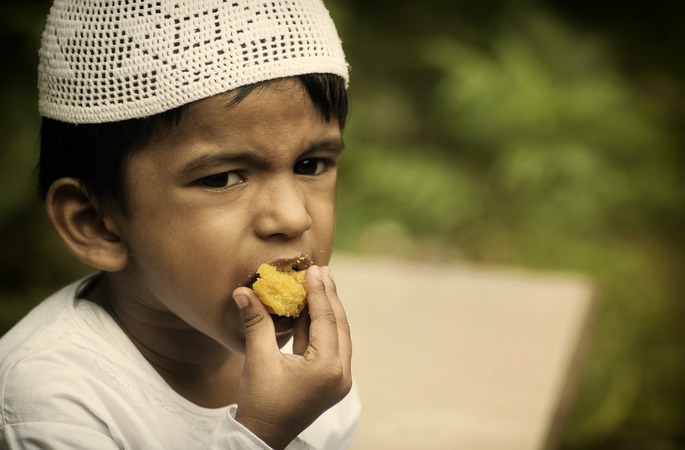“Conservatism is the blind and fear-filled worship of dead radicals”.
Mark Twain
In order to reform the Muslim society in Sri Lanka, all the madrasas which endlessly produce lame-brained Moulavis should be reformed.
This is one of the epidemics which rigorously suppresses social evolution and knowledge. Those who are educated in such informal institutions later become demigods positioned to control the entire society.
Now we are witnessing how the ACJU (All Ceylon Jammaiyathul Ulema), ‘a pathological regressive bunch of elite halfwits’, intervenes in the case of the MMDA (The Muslim Marriage & Divorce Act) issue.
These religious zealots are the representatives of orthodoxy that fanatically try to homogenise all aspects of society. Capitalism, irrational religious dogma and pathological sectarianism are vulgarly blended to insult the rational consciousness of the people.
These hopelessly backward groups recruit their cadres from the madrasas that are continually established at every street corner.
We ought to think about the root cause of our major muck-ups. ‘If we keep feeding these institutions with young lives, the future will be more bleak and desolate as ever.’
Individuals who have big businesses own some of these institutions, and religious sects run others. Companies like No limit and their counterparts liquidate their surplus money in these institutions in search of atonement for the guilt of exploiting young men and women in their sweatshops.
Those who run the organisations like ACJU are the seeds the bourgeoisie class sowed years ago, and now they are harvesting their crops. It’s not rocket science to understand how Muslim politics and religion work in society. This has been the case since the 1940s Sithy Lebbe used to be the radical opponent of the orthodoxy that came up with the idea of Madrasas in the first place. Lebbe was one of many intellectuals in Sri Lanka who sought to shape Muslim identity in the late nineteenth century.
“The recent upsurge of Islamic revivalism that has swept through the Muslim world had added more to the later’s problems than it has provided solutions to those already existing.”
Ameer Ali says in his book Islamic Revivalism in Harmony and Conflict: The Experience in Sri Lanka and Malaysia
Thanks to JR and the UNP, in 1970 free market capitalism arrived in Sri Lanka with many promises. A few years later, those who went to Arab countries as manual labourers smuggled Wahhabism to the island.
A new phase began, with many deadly onslaughts on the native culture of Muslims. Arabisation took its first step by imposing face cover on women. Those who belonged to the Sufi school of Islam were forced to embrace Wahhabisation which outlawed native cultures and other ancient rituals that had been sustained for generations.
In the name of purifying Islam, this divided the society into pieces and claimed that natives and other stakeholders of religion ideologically polluted Islam.
Wahhabi brand religious populism has risen with stunning velocity, and it is boosted by the Saudi money that flowed into those institutions and organisations.
Many students who studied in local madrasas were given scholarships to study in Saudi universities. They then returned home as radicalised – frenzied moulavis, along with followers, who seemed ever-ready to pummel their critics and opponents in the social arena.
Along with this particular clan, the ultra-orthodox Tabligh which predominantly filled up the space aligned with the Muslim business class, and found themselves in a war with Wahhabis.
Now in the contemporary mess, these two groups are the primary stakeholders who have become the reactionary opponents in the battle of reforming MMDA and other social issues. Both groups badly want to homogenise society and centralise the power to their own orthodoxy in the matter of religion.
These sects and institutions are flourishing, nourished by Saudi surplus money and locally contributed donations. Now it has become a fashionable trend to open up madrasas in every village and town. None of these institutions has proper management nor institutional structures: thousands of lives are trapped in this irrational fanaticism that sucks out the childhood of young boys and girls. Considering what is at stake, at least we should be concerned over the lives that are imprisoned within these walls.
Basically, Islam forbids seclusion, and it tries to directly deal with the social life, unlike Christianity or its other Abrahamic counterpart, Judaism, so traditional priest-hood has no place in Islam;
but due to the overloaded misogyny and misinterpretation of basic values of Islam, a quasi-priesthood is encouraged and practised in these madrasas.
Those who raise their voice for social issues often fail to understand this particular problem. The Muslim intelligentsia pretends that these institutions do not exist.
The insecurity of impotent conservatism often checks the capacity of its power by imposing reactionary measures of restrictions on women and voiceless people, as though they are laboratory rats in a socio-political experiment.
I’m well aware of the fact that this particular argument of mine could be taken as a pretext by racially motivated groups to serve their nefarious needs, but this is a critical view on these particular depoliticised orthodoxies that goes under the banner of Islam. Some might go further to connect this issue with the absurd narrow White supremacist narrative of Islam that insists that the 1.6 billion people have got a penchant to become terrorists.
But in the case of Sri Lanka, the conservative version of Islam and the Wahhabite version of it are combatting each other to capture the dominance over the society. The two groups are radically insisting on preserving their orthodox religious understanding – a sectarian battle – rather than making a point or taking a stance over global politics to become stakeholders. The only issue for them is gaining the ideological monopoly within society to preserve this archaic order, unlike the Middle Eastern fundamental groups that yearn for a global Caliphate.
In the Sri Lankan, each religion has its own ugly side that protects its orthodoxy, none of the religious institutions is lesser than the other: each carries its own legacy of human subordination. The discourse against them it should be carried out by the progressive individuals of each community.
It’s time for the Muslim community found theology departments in the universities and demand for liberation theologists, scholarly theologists who have far more insight into, and knowledge of, the modern world and its socio-political dimensions – rather than provincial reactionary moulavis.
The kind of scholarly tradition which produced the ingenious figures like Jamaluddin -Al-Afghani, Ali Shariati and Jalal-Al Ahmad (the key intellectual figure from Iran who came up with a Marxian synthesis with native relevance in the wake of Eurocentric modernity that was engulfing the Muslim world and Asia with its colonial framework).
These scholars identified the core issue of its problems and offered very rational and enlightened suggestions to develop modernity which understood the enlightenment ideals of equality, liberty and women’s emancipation and synthesised it with Islamic ideals.



